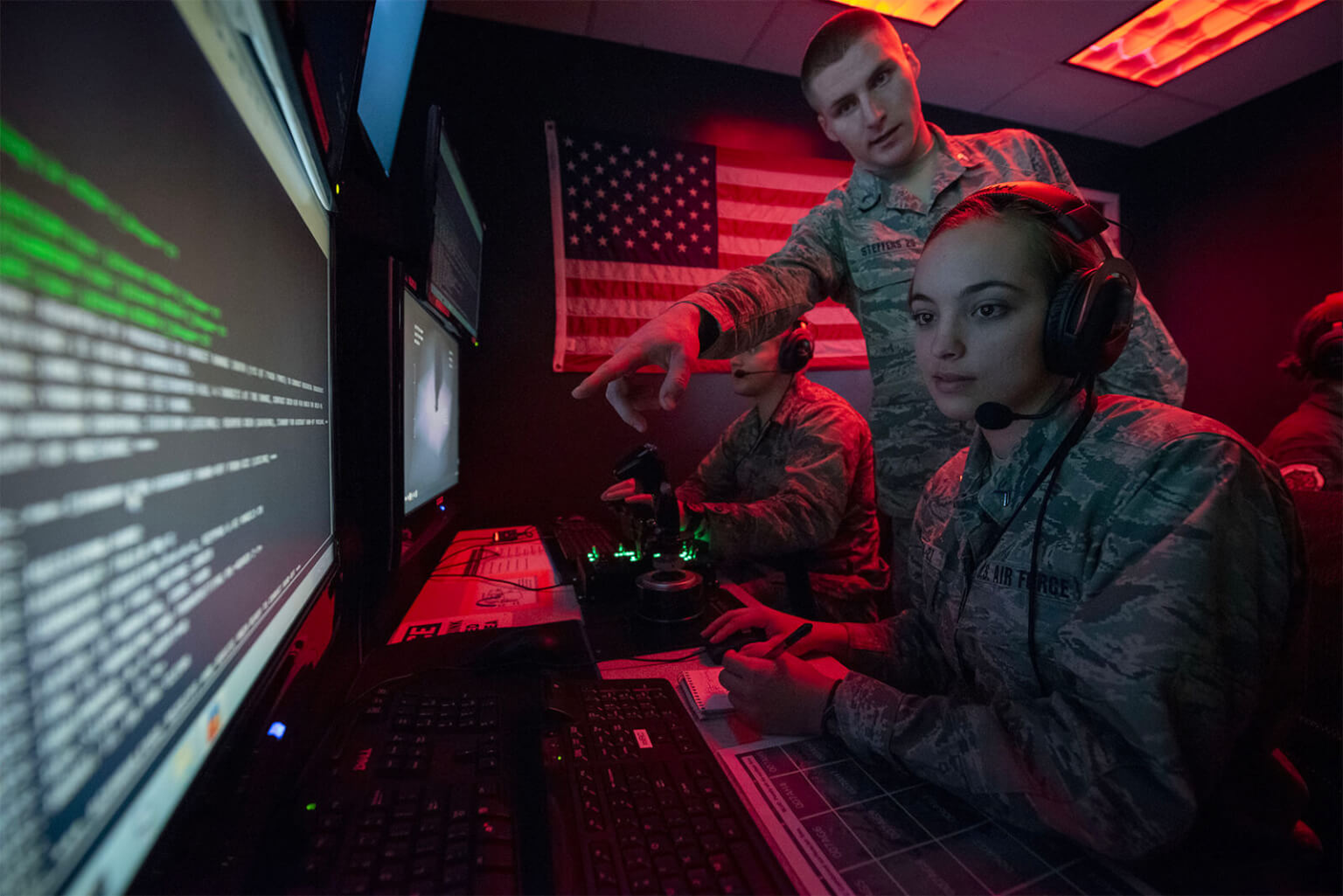IFC, security experts highlight cybersecurity during online panel
 U.S. Air Force Academy photo
U.S. Air Force Academy photo
By Tech. Sgt. Zack Vaughn, U.S. Air Force Academy Public Affairs
U.S. AIR FORCE ACADEMY, Colo. — Senior cyber experts gave their take on the importance of cyber operations during an online forum sponsored by the Institute for Future Conflict at the Air Force Academy, Sept. 23.
Retired Lt. Gen. Bradford Shwedo, the IFC’s director, hosted the forum featuring Lt. Gen. Charles Moore, U.S. Cyber Command deputy, and other career DoD cyber security professionals.
During the forum, Shwedo discussed the importance of cybersecurity in major Air Force logistical movements.
“The world watched us move the equivalent of Oklahoma City in bombs, bullets and beans that enabled Desert Storm,” he said. “But, future adversaries will not allow us to move materials unopposed. A recent Wired magazine [article] showed the effects of ransomware on logistics movements.”
Moore commended his cybersecurity team’s flexibility and ingenuity in keeping his Total Force Airmen connected during the global COVID-19 pandemic.
“Being able to telework from home, being able to communicate with those people was absolutely vital to us continuing the mission and keeping people informed,” he said. “It was no small task to stand up the [commercial virtual remote environment]. It was put into use in just a few short weeks and we ended with about 1.4 million people that were using that capability.”
The panel highlighted cybersecurity operations in defending the U.S. against intellectual property theft and malign actors.
“Positioning ourselves and posturing ourselves to be able to counteract [those operations] has been absolutely critical for the department and the nation as a whole,” he said. “Fortunately, in 2018, we put the policy frameworks in place, we put the approvals in place, and then we actually put the actions in place to start conducting cyberspace operations [in a contested environment] to make sure we can defend the nation.”
However, Moore said, U.S. adversaries can achieve their strategic outcomes in the cyber realm without having to go into crises or conflict phase.
“That really changes the dynamic across the globe and we’re seeing a lot of those types of operations occur in the cyberspace domain,” he said.
The summit closed with a call to action for service academy attendees.
“Follow through,” Moore said. “We need you, we want you and we are not going to be able to perform the traditional military activities that we’ve historically done if we cannot achieve cyber superiority. All of those missions and capabilities that we traditionally look at are dependent upon it. We’re going to need the right people, we’re going to need warriors to help us perform those [cyber security] functions.”
Visit www.usafa.edu/research/institute-for-future-conflict to learn more about the IFC.